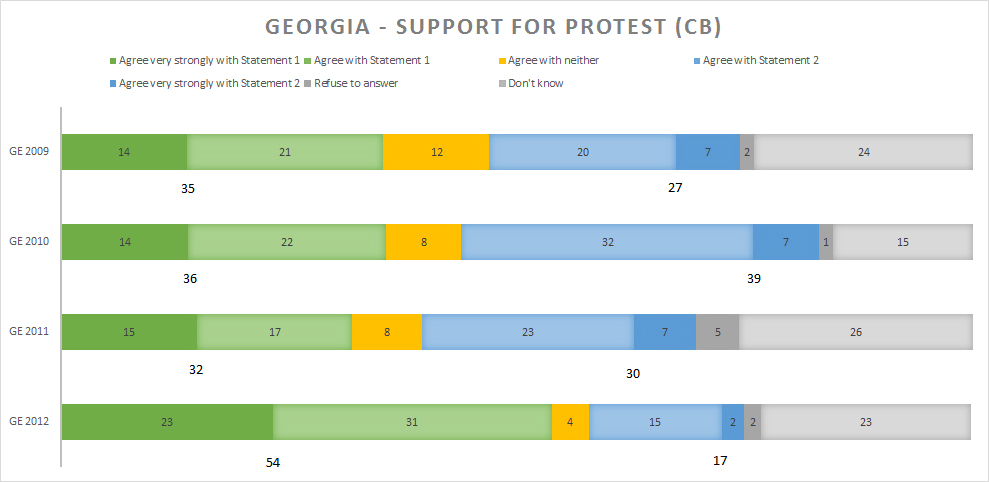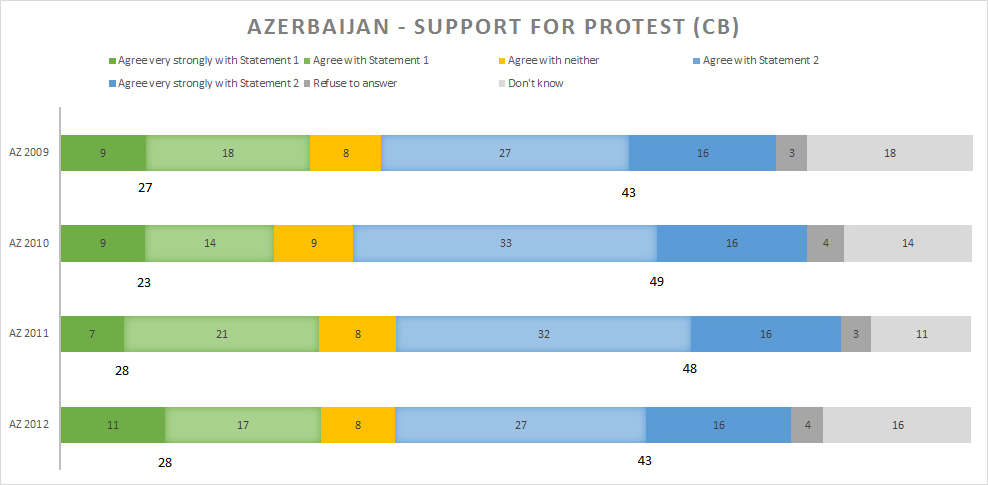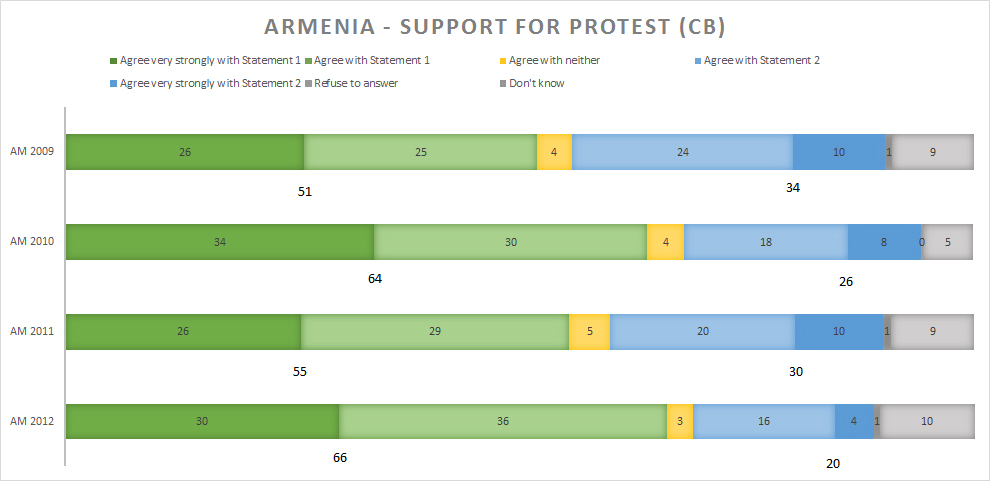Attitudes toward protest over time
(I did a quick blog post on this earlier this year, FWIW)
Attitudes toward protest is one of my favorite Caucasus Barometer questions.
(Sarah Kendzior and I wrote a piece centered around this measure in 2012).
It is an interesting way to ask a question in a vignette format.
People are asked which statement they agree with and degree.
* Very much agree: People should participate in protest actions against the government, as this shows the government that the people are in charge.
* Agree: People should participate in protest actions against the government, as this shows the government that the people are in charge.
* Neither
* Agree: People should not participate in protest actions against the government, as it threatens stability in our country.
* Very much agree: People should not participate in protest actions against the government, as it threatens stability in our country.
* Don’t know
And of course they can refuse to answer.
statement 1:
People should participate in protest actions against the government, as this shows the government that the people are in charge.statement 2:
People should not participate in protest actions against the government, as it threatens stability in our country.
Wow – Georgia in 2012 was really interesting. Of course the Caucasus Barometer was collected in the middle of a huge election, so this likely explains the jump from a stable one-third to over half supporting people protesting in one year.
Attitudes toward protest in Azerbaijan are fairly stable, with about a quarter of the population thinking that it is okay to protest and 43-49 percent thinking that it is not okay. The “don’t knows” and “refuse to answer” are pretty high in Azerbaijan — which could reflect fear, masking, or ignorance.
Between half and two-thirds of Armenians feel that protest is a good thing. And between 20-34 percent of Armenians don’t think that people should protest. A pretty low percentage had no opinion in the matter. The Caucasus Barometer is collected in the late fall. With the 2008 presidential election issue and the early 2013 presidential election issue, during which some protesting occurred, one must wonder if these protests and the response to them had an effect on public opinion.
—–
I was curious who these supporters and non-supporters are (I only did this on the 2012 data).
Armenians that refused to ansawer were highly educated and more urban.
Armenians that answered “don’t know” were wealthier.
Armenians that supported protests were wealthier and more interested in discussing politics.
However, Armenians that didn’t support protests were also wealthier and more interested in discussing politics.
Azerbaijanis that refused to answer were more urban, frequent Internet users, and wealthier, as well as more likely to discuss politics with friends.
Azerbaijanis that said that they didn’t know were more rural and wealthier.
Azerbaijanis that supported protests were more urban, more likely to discuss politics, and wealither, as well as female.
Azerbaijanis that didn’t support protests were also more urban, wealthier, and discuss politics.
In Georgia, those that support protest are more urban, better educated, and more willing to discuss politics.







































